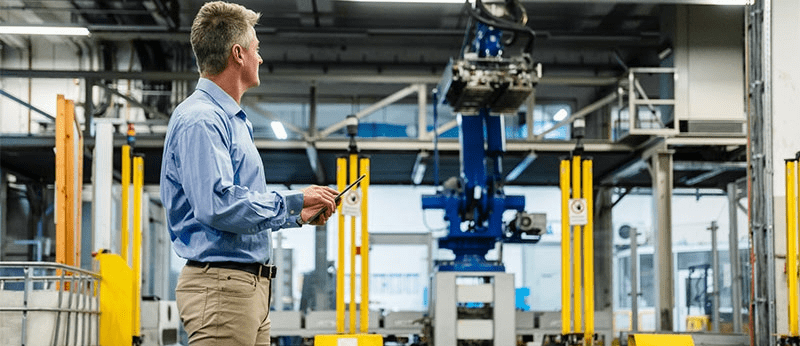
- posted
- article
Smart automation in industry: benefits and opportunities for implementing smart automation systems
Industrial enterprises around the world are constantly striving to optimise their production processes, reduce costs and increase efficiency. Smart automation has become a key enabler to achieve these goals. It uses advanced technologies such as artificial intelligence (AI), the Internet of Things (IoT) and data analytics to optimise production processes and improve decision-making.
One of the key benefits of smart automation is the ability to collect and analyse large amounts of data from a variety of sources, including sensors, monitoring systems and production equipment. This allows businesses to gain a deep understanding of their processes, identify weaknesses and identify opportunities for optimisation. For example, by analysing production capacity and load data, a smart system can identify peak times and suggest optimal equipment schedules, reducing energy costs and preventing overloads.
Integration of artificial intelligence enables automated systems to learn, adapt and make decisions based on data analysis. The use of machine learning and deep learning algorithms allows for automatic detection of anomalies, prediction of equipment failures and predictive maintenance. This increases the efficiency and reliability of production processes and reduces the risk of repair costs and equipment outages.
The Internet of Things allows various devices and equipment to be connected to the network, which increases the degree of automation and control over production processes. For example, IoT sensors can monitor the status of equipment in real time, transmitting data about failures or potential problems for further analysis and action. This allows you to respond to problems quickly and automatically, preventing production stoppages and improving overall productivity.
In addition, smart automation helps to optimise supply chain management. Collecting and analysing data allows you to forecast demand, manage inventory and improve logistics. This helps to reduce warehousing costs, improve delivery and ensure on-time delivery of products.
In summary, smart automation in industry opens up many opportunities for optimising production processes. The introduction of artificial intelligence, the Internet of Things, and data analytics allows for the collection, analysis, and use of large amounts of information to make effective decisions. This improves productivity, reduces costs and increases the competitiveness of enterprises. Smart automation is the future of industry, helping businesses reach new heights of efficiency and success.